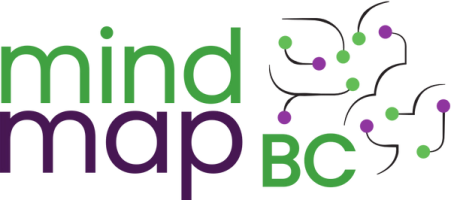Summary
Individual counselling
FNHA
Sliding Scale Available
Seniors
Youth
2S/LGBTQ+ Affirming
 Wheelchair Accessible
Wheelchair AccessibleTrans Affirming
Two-Spirit Affirming
LGBQ+ Affirming
Online resource
Do you feel like you're stuck in old patterns? Are you always zoning out or in crisis mode? Do you struggle to connect with your body and aren't quite sure what it means to feel your feelings?
Would you prefer to work with a queer therapist with experience supporting 2SLGBTQ+ folks and who is committed to integrating social justice into therapeutic work?
I will work with you to find an approach that fits your needs. My area of focus is Somatic Experiencing®, a practice that can help you connect with the here and now through connecting with your own body, your environment and important people and resources in your life.
I offer virtual services (video or phone) and I am only able to serve clients located in British Columbia. In January 2023 I will also be able to virtually support clients in Ontario. If you are located in Ontario, feel free to get in touch and we can begin working together in January.
I work with adults and youth 14 and older.
Want to learn more about this service’s work with Two-Spirit, trans, LGBQ+ people?
We invite all service providers listed on MindMapBC to answer the following questions. These questions were developed in collaboration with community members, researchers, and mental health and other service providers. They're intended to help us understand what a service provider or organization is doing to affirm and support sexual and gender diverse service users.
See below for responses for this listing.
Want to learn more about our screening questions and filters?
Are the forms used in your practice inclusive of various sexual orientations and gender identities (e.g., opportunities to fill in pronouns, etc.)?
—Yes
Do you collect and use preferred names (rather than legal names) for all communications?
—Yes
If submitting counselling receipts to an insurance provider, legal names may be required to be on the receipt in order to receive compensation.
Do you and your colleagues have experience providing services that support clients with navigating gender dysphoria*?
*TransCareBC describes gender dysphoria as a term "intended to describe the distress some trans people experience with relation to their gender identity, particularly if they would like to transition but have not yet done so".
—Yes
I have experience providing mental health supports in a health program that supports trans people in accessing gender affirming health care.
Please tell us how equipped you feel to support a client in determining if/when their mental health symptoms are related to their gender-related experiences or other factors? Please describe your response choice below.
—Very confident
Do you/your colleagues understand the difference between gender dysphoria and mental health conditions/symptoms that are unrelated to gender dysphoria or distress?
—Yes
Do you and your colleagues have experience working with people who identify as living with a disability or chronic illness? Please tell us more about your experience and any training you have received.
—Yes
I have experience in many settings (non-profits, health clinics) working with people who live with disabilities and complex health conditions.
Are you and your colleagues aware of what specific barriers may exist for Two-Spirit, queer, or trans Indigenous individuals accessing your services?
—Yes
Colonization and anti-Indigenous racism have made health care and mental health settings frequently hostile and dangerous for Indigenous peoples. Working with a white therapist may not feel comfortable or safe. For those who want to connect, I approach my work with Indigenous people with cultural humility and respect.
Are you and your colleagues aware of what specific barriers may exist for LGBQ individuals accessing your services?
—Yes
As a queer person myself, I understand that stigma, lack of resources and assumed heterosexuality and homophobia can make accessing new services extremely challenging.
Are you and your colleagues comfortable asking relevant questions about gender identity and sexual orientation?
—Yes
Do you offer Indigenous 2S/LGBTQ+ specific resources, for example Indigenous Elders or Knowledge Keepers?
—No
I offer information about resources and support clients in connecting with culturally appropriate support.
Do you and your colleagues ask clients about pronouns and use them appropriately?
—Yes
Knowing and using correct pronouns is a great way to build connection with my clients.
Are you and your colleagues aware of what specific barriers may exist for trans individuals accessing your services?
—Yes
I understand that many transgender people have had negative experiences with mental health services due to transphobia and/or assumed cisgender identity, which may make meeting with a new counsellor extremely challenging.
Does your practice have gender-neutral washrooms?
—Not applicable (please explain why this is not applicable)
I only offer virtual services.
Are there clear anti-discrimination policies that include gender identity, gender expression, and sexual orientation in your organization or practice?
—Yes
This is covered in my social work code of ethics.
Are all individuals involved in service provision actively engaged in decolonizing their practices and/or organization? If yes, please type below what actions you and/or your organization are taking.
—Yes
Self-education on Indigenous peoples movements, histories and organizing. De-centring whiteness in understanding mental health and trauma. Prioritizing relationships with community, the earth and culture in therapeutic work.
Are all individuals involved in service provision actively engaged in anti-racist practices, policies, and systems in their care model?
—Yes
Address
516 - 119 W. Pender St.
Vancouver, BC
V6B 1S5
Last updated: December 20, 2022
Request changes —

